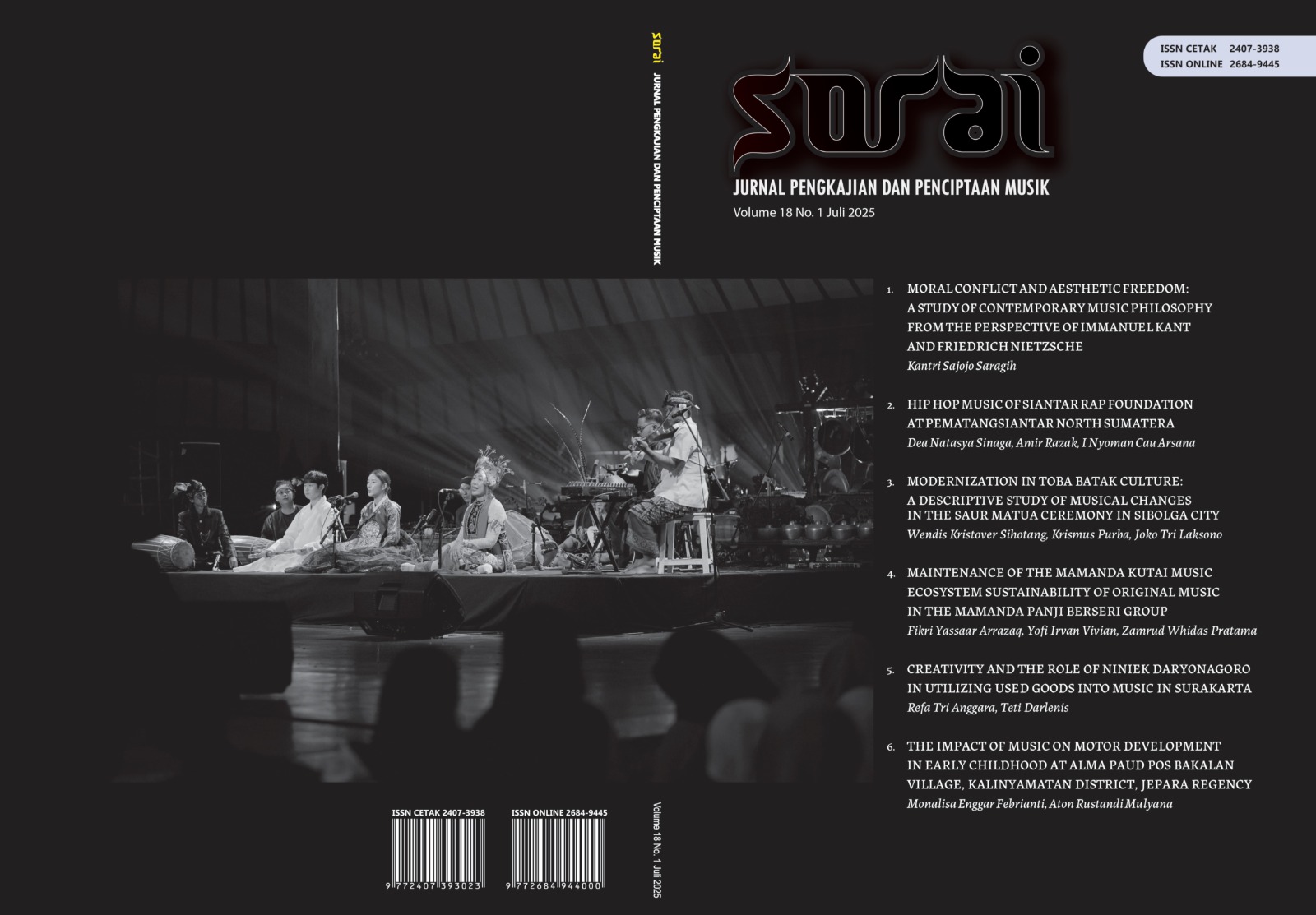MORAL CONFLICT AND AESTHETIC FREEDOM: A STUDY OF CONTEMPORARY MUSIC PHILOSOPHY FROM THE PERSPECTIVE OF IMMANUEL KANT AND FRIEDRICH NIETZSCHE
Main Article Content
Abstract
The evolution of contemporary music has created a tension between universal moral demands and artistic expressive freedom. This study analyzes this dialectic through the philosophical lenses of Immanuel Kant and Friedrich Nietzsche. Kant emphasizes aesthetics as a universal experience bound by morality, while Nietzsche liberates art from traditional conventions in favor of transgressive creative expression. The research examines radical works such as 4'33" (John Cage) and atonal music (Schoenberg) as rejections of classical aesthetic norms. The findings demonstrate that contemporary music becomes an arena for clashing values between Kantian moral order and Nietzschean deconstruction of traditional values. This conflict reflects the modern cultural dilemma of either maintaining universal principles or embracing boundless creative freedom. Using a qualitative philosophical approach, this study highlights contemporary music's dual role as both social critique and aesthetic experiment that transforms artistic paradigms.
Downloads
Article Details

This work is licensed under a Creative Commons Attribution-ShareAlike 4.0 International License.
Copyright
Authors who publish to Sorai: Jurnal Pengkajian dan Penciptaan Musik agrees to the following terms:
- Authors retain copyright and grant the journal right of first publication with the work simultaneously licensed under a Creative Commons Attribution License (CC BY-SA 4.0) that allows others to share the work with an acknowledgment of the work's authorship and initial publication in this journal.
- Authors can enter into separate, additional contractual arrangements for the non-exclusive distribution of the journal's published version of the work (e.g., post it to an institutional repository or edit it in a book), with an acknowledgment of its initial publication in this journal.
- Authors are permitted and encouraged to post their work online (e.g., in institutional repositories or on their website) before and during the submission process, as it can lead to productive exchanges, as well as earlier and greater citation of published work.
